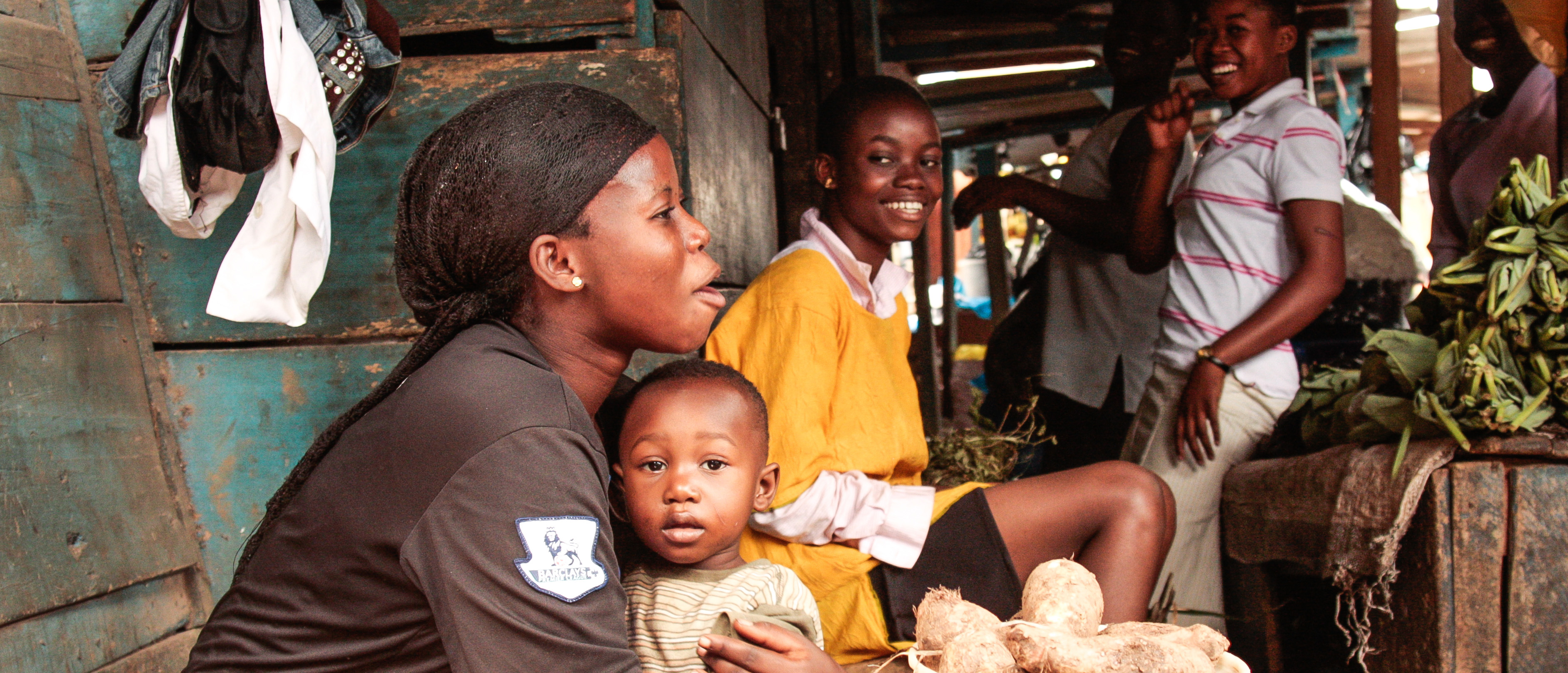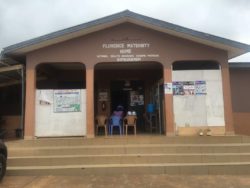
Driving Innovation for Improved Maternal and Child Health in Rural Ghana
Although Ghana, situated on the Gulf of Guinea in West Africa, is experiencing rapid economic growth, it contains high levels of inequality when it comes to the health of its people. There is a large gap in health outcomes between urban and rural areas, including for mothers and children. In the past, private maternity homes (PMHs) bridged this gap as important providers of maternal, newborn and child health (MNCH) services in rural parts of the country. However, despite the efforts of the government of Ghana and the donor community, the number of PMHs has steadily declined over the past decade, with many closing or reducing services as their ageing midwife owners retired or passed away.
Located in a remote village in the Brong Ahafo region in Ghana, Florence Maternity Home, owned by Ms. Florence Quaque, a midwife, was one of the few sources of health care left for women and children in the area. However, due to restrictions on the scope of care that midwives are able to offer, Florence Maternity home was legally unable to treat children above five years of age and could not provide treatment for pneumonia, hypertension, diabetes, and minor infections, common issues for pregnant and new mothers in the region. In short, Florence Maternity Home could only offer limited services to this underserved population, which had the dual effect of reducing its potential sources of income, impacting the overall viability of the maternity home.
Ms. Quaque knew that, if she wished to remain a viable provider of maternal and child health care in Brong Ahafo, she needed to expand her facility’s services. That’s when the Saving Maternity Homes in Ghana, Innovate for Health (SMH) project stepped in. The United States Agency for International Development (USAID)-funded SMH project, implemented by Banyan Global in partnership with the Ghana Registered Midwives Association (GRMA), focused on revitalizing PMHs in Ghana to expand access to quality MNCH services.
The SMH project took an innovative approach to revitalizing PMHs through ownership and management transformations. The project developed the capacity of PMHs in business continuity planning and clinical service provision; facilitated “transformations” involving PMHs acquiring new owners, managers, or skilled personnel; leveraged grant financing to improve quality and expand service delivery; provided business strengthening and clinical capacity building to new owners and managers; developed the capacity of GRMA to better serve its members; and conducted operations research to understand the effectiveness, and potential replicability, of the project design.

Florence Maternity Home.
Ms. Quaque participated in the project’s Business Continuity and Succession Planning training in May 2015. After learning about the benefits of service diversification, especially with the planned roll-out of a capitated payment scheme under the National Health Insurance Scheme, which would favor health facilities that could offer a broader range of services, Ms. Quaque decided that Florence Maternity Home should undergo a transformation. The SMH project helped Ms. Quaque to identify a licensed medical assistant, Mr. Stephen Adane, who could enable the PMH to diversify its services and improve the facility’s management. Ms. Quaque also participated in the SMH project’s clinical training, in which she received guidance to improve the quality of clinical services provided at her facility with a focus on quality assurance, emergency response, safe motherhood, and advocacy. With Mr. Adane on board and clinical training complete, the PMH completed its service diversification and management transformation in 2016. Following the transformation, Florence Maternity Home received two one-on-one clinical counseling visits and regularly participated in the project’s quality circles to receive additional clinical capacity building assistance to strengthen infection prevention, expand emergency obstetric and neonatal care services, improve the organization of labor wards, maintain accurate clinical records, and design messages for advocacy and sensitization.
According to Ms. Quaque, “Without doubt, SMH assistance is allowing my facility to diversify service offerings, resulting in more clients than before.”
In fact, since 2015, Florence Maternity Home has seen a 57 percent increase in the number of MNCH visits, and a 17 percent increase in family planning and reproductive health (FP/RH) visits. And Florence Maternity Home is not alone – when the SMH project ended in February 2018, transformed facilities demonstrated a 50 percent expansion in average monthly MNCH service visits and a 23 percent expansion in average monthly FP/RH visits. Overall, the SMH project helped transform 22 PMHs; 100 percent of the transformed PMHs demonstrated improvement in quality of clinical services.
Furthermore, Florence Maternity Home demonstrated an expansion in the number of beds available, as well as an expansion in full-time staff members, along with a 28 percentage point improvement in quality assessment scores, receiving a 99 percent at the end of the project.
With the successful transformation complete, Florence Maternity Home successfully graduated from a PMH to a health center, capable of offering an expanded range of services. Now called Pure Heart Health Centre, the facility is able to provide pneumonia, hypertension, diabetes, and minor infection services, as well as treat children above the age of five throughout the Brong Ahafo region, along with continuing to provide quality MNCH services. Indeed, the transformed facilities supported by the SMH project demonstrated an average expansion of four new services. In addition, 95 percent of transformed PMHs demonstrated improvements in financial sustainability.
Ms. Quaque’s Florence Maternity Home is just one example of how the SMH project strengthened the quality of PMHs’ clinical services and supported the expansion of health services in underserved and rural areas of Ghana. Across the country, PMHs are better prepared for capitation, if it is eventually rolled out, and mothers and children have improved access to the services they need to thrive. The SMH project’s innovative design proves that transformation is a more effective way to achieve clinical improvements than training and technical assistance alone, and can serve as a model for improving clinical services in other parts of the world. It also tests an innovative approach to scaling up limited service providers to more complex models for diversified care.
